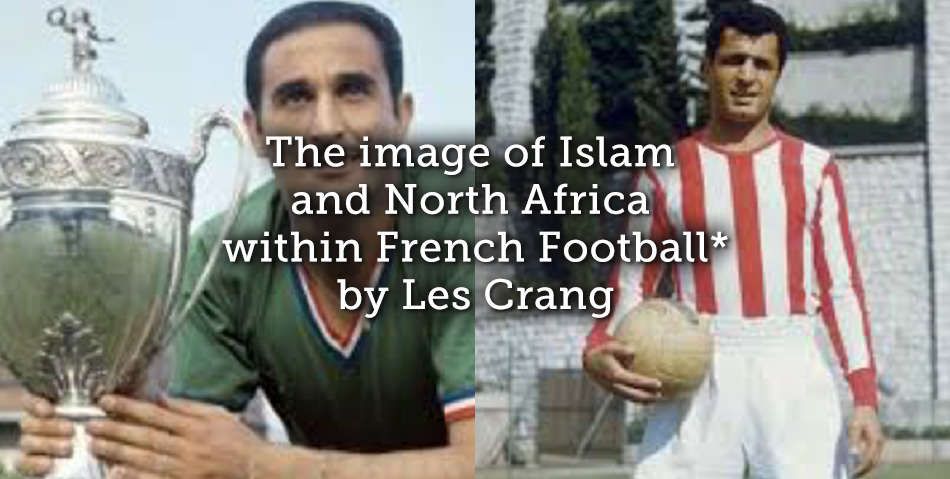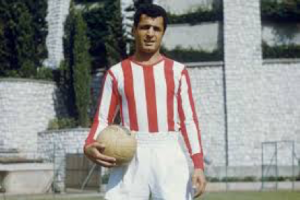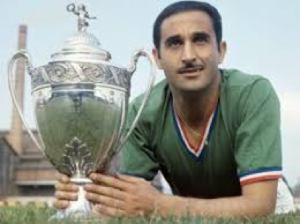The Orient and Islam have a kind of extrareal, phenomenologically reduced status that puts them out of reach of everyone except the Western expert. From the beginning of Western speculation about the Orient, the one thing th orient could not do was to represent itself. Evidence of the Orient was credible only after it had passed through and been made firm by the refining fire of the Orientalist’s work.
‘Orientalism’, Edward Said (2014)
As Bayern Munich inexorably achieves another Bundesliga title and Franck Ribery’s 8th, the replacement of perhaps the finest wingers that have played for the club has come into focus. These two being Arjen Robben and Franck Ribery. Ribery is perhaps one of the most famous footballers from the Muslim faith. This article looks at the representation of Islam within both France and the UK to some extent, but predominantly in reference to the man called ‘scar face’ after a scar down his left cheek, aged 2 (Thedailystar.net, 2006).
Firstly, in writing this article, I am not saying I am an expert in French football or Muslims players representing France international teams. But, as I have been looking into the impact of Islamophobia within the FLA and will be giving a paper at footycon in June this year, the presentation of Islam within football in the UK is minimal at best. Therefore, France gave me a larger canvas to discuss representations of the Religion within Sport.
France is a very culturally diverse country, having owned much of what was termed ‘West Africa’ well into the 1960’s, famously fighting the Algerian war (1954-1962) which was made into documentary called ‘The Battle of Algiers’ Gillo Pontecorvo by :-
In many ways, the War with Algeria underlined perhaps the quintessential but complex relationship France has with Islam and North Africa, or as Edward Said says in his book ‘Orientalism’, they are ‘the other’.
This was underlined in a recent talk given by Lindsay Krasnoff for SOAS Centre for International Studies and Diplomacy, in which she discussed diplomacy, Sport and France (part of a highly interesting series that Dr.Simon Rofe and PhD final year student Verity Postlethwaite have hosted recently at SOAS on diplomacy and Sport). She said, that in 1998, whilst in France at University, with the World Cup going on, the importance of Algeria was virtually ignored in school and somewhat academically. For me, this seemed odd, as this is a pretty major event, especially when even last year in the face off between Macron and Le Pen, in the French election, Macron pointed to remember the death of a Moroccan 22 years previous after a Front National rally in Paris. As Oprea says:-
Macron’s commemoration of the drowned Moroccan man is a reminder that Le Pen’s National Front party is rooted in France’s tortured history with North Africa, and that the broad contours of this year’s presidential election have deep roots in the collective French psyche.
In the Sporting arena, the Algerian war would spark perhaps one of the most political statements in African colonialism, when the Algerian opposition the National Liberation Front looked to create an international team to play friendlies to raise the profile of the Algerian revolt and earn cash for the rebellion. This was the brainchild of Algerian born player Mohamed Boumezrag of the mid 1940’s. Boumezrag team would be called Équipe FLN. In 1958 he approach two Algerian players Mustapha Zitouni and Rachid Mekloufi (see below), were two French international likely to appear in the 1958 World Cup
On the night of 4 April 1958, just two months before the start of the World Cup that would unify Brazil, 12 Algerian players disappeared from France. They left behind teammates, friends, families and professional careers in the name of their national identity. (Sippie, 2017)
- Mustapha Zitouni
- Rachid Mekloufi
The irony of the exclusion of these two players, is that France, had, at the time, its most successful World Cup, losing 5-2 in the Semi-finals to Brazil, but defeating Germany 6-3 in the 3rd/4th place play-off. With the top scorer of the tournament scoring 13 goals. An individual World Cup tournament record that still stands today. The Moroccan, Just Fontaine:-
Would they have won in 1958? It’s doubtful, against Brazil, but the Semi-final defeat was due to an injured player and no subs in those days, so it is not unfathomable.
The importance of North Africa, therefore is something of importance to France. Geoff Hare in his book Football in France : A cultural history has spoken of how from the 1982 World Semi-final with Germany quoted Demerin from 1986 discussing the team thaT ‘France from Dunkirk to Tamanrasset…..playing football as beautiful as fireworks ….the technicolour of France versus the black-and white Germany’. But by 1996 Front National leader Jean-Marie Le Pen saying the team was ‘artificial’ and ‘visibly did not know the words of the Marseillaise’. In other words not ‘proper’ French people. White, Christian people.
Increasingly, the power of Front National has come to bear on players and France. Le Pen odious quote, prior to the 1998 that it’s ‘not a real French team’ has underlined a rising tension within France, especially towards Islam. The attacks in Paris (1, 2), Nice and Lyon by Islamic extremist has created rising tension against Islam within France. It’s also made the Front National a highly popular party.
In many ways Franck Ribery is the personification of France and, to a degree, what it likes but also despises. Without doubt, Ribery is perhaps one of the finest player to come out of France.
His 8 Bundesliga titles, a European Cup and other German Cup victories with Bayern and a Turkish Cup medal with Galatasaray in 2005 or the 81 caps for France. Or, lets not forget his performance in the 2006 World Cup, were Ribery was denied the player of the tournament by Zinedine Zidane.
Ribery has often been the ‘bad boy’ of French football, which, considering his skill is irksome. To me, the problem is where he’s from and who his good is. Ribery is a Muslim, who converted to Islam in 2002 after marrying his Algerian wife. Jean-Marie Le Pen has often been one to criticise him, in 2010 saying:-
The anti-hero Ribery is … a counter-example for our youth……Nothing justifies such advertising display [in his local Town in Northern France, after he had been involved with French prostitute Zahia Dehar] openly promoting Franck Ribery, a controversial personality who has always adopted the behavior of a true anti-hero.
Increasingly, Ribery has been the one who has been made ‘the other’ in French football. For example, it seems odd that when Ribery retired from international football in 2014, Michel Platini said ‘cannot decide himself whether he plays for France’, even though he was aged 31 at the time. In sport this seemed unheard of. Unless you are a Muslim in Sport and think of Ali in 1967 being forced to join the Army aged 32 in 1967.
Or what about the image above? Ribery getting beer thrown over him by Jerome Boateng in the celebrations of another Bayern title? The Daily Mail said of it:-
Muslim footballer Franck Ribery gets a soaking from his Bayern Munich teammates who drench him in beer during title celebrations
Again. A situation where Muslims are seen as not ‘joining in’. Something Burdsey has discussed in British Asians and Football: Culture, Identity, Exclusion as well as Crabbe et.al discussed in The Changing Face of Football: Racism, Identity and Multiculture in the English Game.
Ironically, this was all untrue, when the Bavarian Football works pointed out this was untrue. Saying:-
Me and my bro Ribéry everything is Fine it was nonalcohol Beer so all Good It was non-alcoholic beer.
- See – Jerome Boateng (@JB17Official) May 14, 2013
Franck Ribery has always been literally seen as the ‘bad boy’ of French football, with a scar down his face has earned him the nickname ‘Scarface’. Hardly a nice name to have, if one thinks of the classic Al Pacino movie:-
The being forced to possibly play for ‘his’ country’. Or that he’s seen as a dullard who won’t enjoy a ‘laugh’ with his Bayern Munich colleagues. Ribery is a victim of his religion, in a Country that struggles with its past colonial empire in North Africa, and North Africa’s often intrinsic religion being Islam. Ribery, in converting to Islam, will always be seen as not ‘wholly’ French. He will always be ‘the other’. Le Pen has certainly pointed this out. Shame. He’s been a player that I have always enjoyed watching.
Note – Kamel Benmesbah, Bourenane Mustapha & Benbousta Rahima – Football, the standard-bearer of the Algerian people revolution until independence (1957-1962) will be covering France and Algeria at Footycon in June, 2018.
Article © Les Crang









